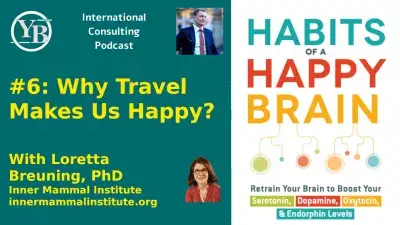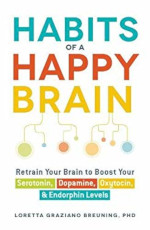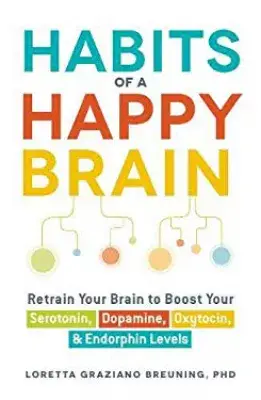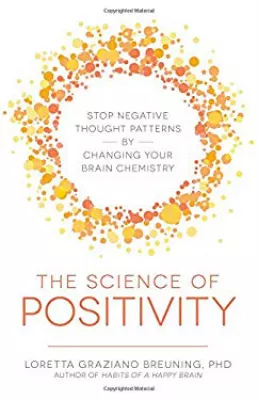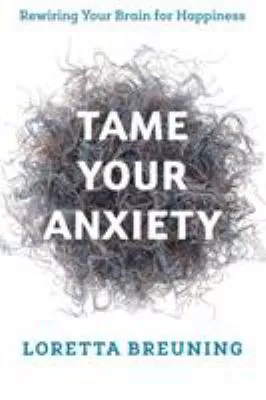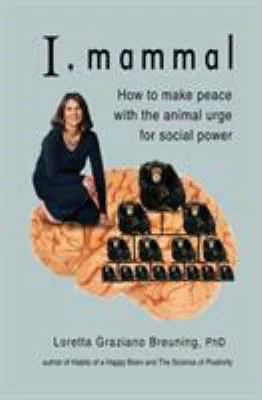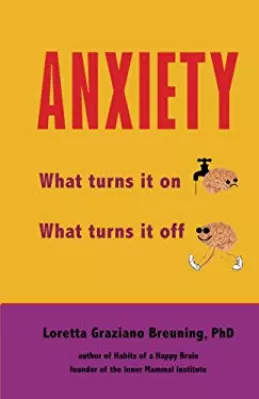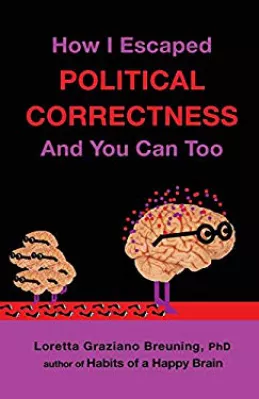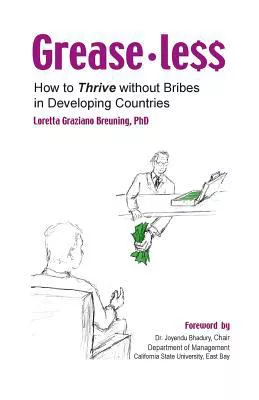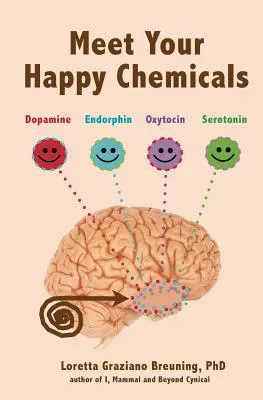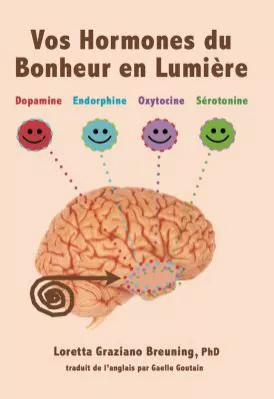International Consulting Podcast #6: Why Travel Makes Us Happy? With Loretta Breuning, PhD
- watch the videocast, listen to the podcast
- why travel makes us happy? The brain chemicals behind it
- Brain chemicals and effect on traveling habit
- Childhood habits and myelin chemical
- Origins of the travel addiction
- Different types of brain rewarding travel styles
- Serotonin chemical and socio dominance
- Oxytocin chemical and social trust
- Finding the right travel partner and enjoying different travel experiences
- Brain happiness when not traveling: boost your serotonin dopamine Oxytocin and endorphin levels
- Travel happiness from home: setup goals!
- Loretta Breuning, PhD's books:
- Order Loretta Breuning's books
- Frequently Asked Questions
Traveling is a happiness rewarding habit for many people, and we always want more of it – or at least, I do personally! But why does it, how to manage happiness coming from travel, especially during stay at home times?
In order to understand the brain chemical behind travel happiness, I talked with Loretta Breuning, PhD and author of habits of a happy brain that explained me how it works, what are the brain chemicals behind it, and how to manage them.
Her main tip: set up travel goalsLoretta Breuning teaches people about the brain chemicals that make us feel good. She’s founder of the inner mammal institute, professor emerita of management at California state university, east bay, and author of habits of a happy brain: retrain your brain to boost your serotonin, dopamine, oxytocin and endorphin levels.
watch the videocast, listen to the podcast
why travel makes us happy? The brain chemicals behind it
hello and welcome to this episode of international consulting podcast. My guest today is Loretta Breuning, and you are a book writer, a former teacher in international management? Yes, college professor and you now focus on writing books that are related to the animal brain yes and the correlation with the human brain yes and the brain chemicals that make us feel good that we have inherited from animals.
Okay very interesting and today we will actually talk about why travel makes us happy and yes how does the animal brain or what can the animal brain teach us about happiness in traveling and the habit of traveling? So I am myself what I would say a big traveler I had done a year-long world tour I have been on more than 600 flights I have been a digital nomad for five or six years now so does it mean that it's a habit coming from my brain? Yes it's a habit um so the brain learns from experience we are not born hardwired like a lizard leaves home as soon as born because it's hardwired with all of the survival behaviors it needs.
Humans have a longer childhood than any animal because our brain is wired from experience so anything that felt good in your past wires you to repeat that behavior and anything that felt bad in your past wires you to avoid that behavior and that's how the animal brain is designed to work.
So when I was young I had a great feeling from traveling and I had bad feelings for many other things so that taught my brain traveling as a way to feel good in the same way that if you give a monkey a banana then it learns that a banana is the way to feel good so your experience of course we're different and so you wired in your own specific example of this and everyone listening has wired in their specific but what we all have in common is what makes us feel good depends on these certain brain chemicals.
Brain chemicals and effect on traveling habit
should I explain them? Yes, please!Yeah so dopamine is the main brain chemical that motivates us and in the world of our ancestors they had to look for food all the time so seeking stimulates the good feeling of dopamine so when you look around for something and you're like there's food that's what our ancestors were always looking for, food.
And they would get happy when they found it because dopamine was released because in the past their brain had learned that food relieves hunger and if you see something green in the distance you get more and more dopamine when you approach it so that good feeling of seeking or foraging is something that we all look for and in the modern world it's easy to find food so we all look for other ways to get that feeling, and travel is a great way to get it people have all different ways of seeking but travel has no calories.
It, you know it's not it well it's not bad for your body necessarily um so so when you travel you're looking at new inputs and I think that's very much stimulating dopamine.
So if I understand well are you saying that travel is like an addiction? Kind of, for some people. So here's the thing an addiction is when you feel bad what do you think of to expect to feel better so we all have you know like when when a monkey is hungry it looks for food but it learns that food relieved the hunger so when you were young if you felt bad and you had a cigarette then you learned okay cigarette will relieve the bad feeling.
Maybe some people went to a party other people played a video game so it's the expectation this will make me feel good and then every time I feel bad I go to that so that's the way I look at it so a person may have a number of addictions and they may not be addicted to travel they may only travel once a year and have other addictions while they're home so it's very individual depending on our own experience.
Okay are there other chemicals besides? Yes exactly so the other chemicals serotonin Oxytocin and endorphin.
So Oxytocin is the chemical that is often called the love hormone or the bonding hormone and it causes um social relations social trust and in animals it causes herd behavior.
So our ancestors lived in a tribe because it was safe and when they left the tribe they felt like they would be killed and it was not safe to be alone so today we have many different ways of managing that experience.
Some people want to be with a group all the time and they feel unsafe when they're not with a group other people they like to be alone but their animal brain maybe feels unsafe if you're alone 100 of the time so they have their strategies for giving their inner mammal the feeling that it's with a herd.
And there are many ways to do that and traveling is one way because when you travel especially if you're a digital nomad and you connect to the community of other digital nomad so wherever you go you find new people they're nice to you but you don't have to carry their problems.
Whereas at home when you have this tribe then you have to take the weight of their problems I know this very well so this is it and there are many ways to do that so many people who do not travel they go to a bar and they walk in the bar and they expect people to be nice to them.
Other people they want to tell someone their problems they want to connect around problems other people do not want to connect around problems so whatever worked for you when you were young that's the way that you try to stimulate the good feeling of social trust.
Childhood habits and myelin chemical
is it always coming from childhood or can you develop these habits later on?you can, maybe you read my book, so you can develop them later on but it's hard because the old pathways are extremely well developed and to build a new pathway in adulthood it takes a huge amount of repetition and people often don't want to do the repetition.
So when you're young you have very high neuroplasticity and that means you just hear something once and you build a connection and then you know it and if you've ever been around a child learning language you know children learn language easily and that's because of a chemical called myelin.
And we have a huge amount of myelin until we're two years old so you don't have to feel old now because everybody over two has.
But then it peaks again in puberty and the reason for that is in the animal world animals move to a new location before they mate to avoid inbreeding and myelin helps them learn new information so if you imagine our ancestors moved to a new tribe in puberty for marriage and they had to learn a new language and new customs and new geography.
And so um whatever made you happy when you were a teenager is usually the big thing after that many people are unhappy with the pathways they have and they want to rewire them and that is the topic of all of my books is how to do that.
And as I said the simple answer is repetition but it's not fun so the way to do that is to target the new circuit that you want to have very specifically so that you can repeat it and then reward yourself for repeating it.
That's a lot of information actually in your books are you talking about traveling? Oh good question. In my books I do not talk a lot about travel, but that was always my personal addiction that was what always kept me going until now and even now I mean it's still the thing I think about.
Like how can I travel I use some individual examples of travel but in my books I try to use universal examples which is of course complicated because if our circuits are built from individual experience it's harder to have universal experiences.
But that's what my books focus on but I should tell you what my personal example was when I was young I had a rather unhappy family as many people do and I had a lot of unhappiness and looked for a way to relieve it fortunately I was not exposed to a lot of bad habits and I had one good thing that fell just fell from the sky for me.
So my parents did not leave home a lot but when I was a teenager my father was given free trips by his employer and he brought me on some of the trips and so and even before he brought me I always say like I was 10 years old and my parents went to japan and china and like these were people who never went anywhere and now they're coming back from japan and china and then they went to Europe and it was a certain excitement.
Another thing every brain has what's called mirror neurons we mirror other people and when we do that we feel excited about whatever they're excited about so I never saw my parents get excited except for not for anything good anyway but um but for travel it was a healthy way that I had in my own little world to get excited.
Origins of the travel addiction
so I think that's how I got addicted now then I got more addicted when I was a teenager because I had let's say I had problems fitting in and I found my own way I had this dream of going to Paris.
I thought Paris. Was the stanton because I studied french when I was in school and in your french textbook you always have little stories about Paris. So it was always presented as if it were Disneyland.
So when I was 16 I got the idea that I would earn money and go to Paris. And I did it so all through high school every day I went to work after school I earned money all and as the day after a week after I graduated I got on a plane and went to Paris. I studied at the Sorbonne just for one month and then I travel all around but the interesting thing is that my parents did not want me to go!
So that was the big pressure of getting them to agree to let me go and so was it a good experience overall to go to Paris.
Did it lead you to keep traveling? Good question, each person you know the addiction is I think very specific so for me it was partly the planning you know it was like two years of planning of this trip so I think the planning of it was as big of a factor as the trip so and maybe that's how I got a PhD because I was able to take on a very distant goal and feel relaxed.
Because then I don't have to worry about everything else because I'm only worried about I have this goal to focus on so I think that was a big part of what I learned but yes I did because then I went what did I do the next year I came home I went to college and what did I do I got a job after school and spent all my time planning a trip for the next summer and the next and the next and the next and then like an addict soon Europe wasn't enough.
So I needed to go to Africa Asia communist countries but I was never a danger addict you know I didn't want to do things that were really dangerous.
I always drew the line like even when I was 17 I was not gonna be sleeping with a lot of strangers in parks you know.
But then is the pleasure more in the planning or in the execution? It's very individual so it's whatever that person is having that bad moment and then something so good happens and that tells your brain the next time you feel bad do this so everyone can trace their own life and see how it works.
Different types of brain rewarding travel styles
I'll give you examples of people who are very different from me so when I travel I don't want to spend a lot of money because I want to be able to travel more but for many people when they travel they spend a lot of money and that's their way of saying for two years I'm going to feel like a rich person and I don't enjoy that at all you know.
I go to an expensive hotel and I think it looks boring why would I spend you know a week's budget and one night just to be in this boring place?
I don't so and I don't like having people waiting on me you know but some people love that so the other thing my husband and I go to Hawaii we don't like beaches you know so we we like to be in a rain forest so some people like to wear a bikini, they're focused on their appearance and they associate travel with that.
Some people like adventure sports so it's very individual and also for me I like to speak foreign languages so I always want to go to a place where I can enjoy a foreign language so it's very individual yeah.
Oh and I should add let me say that the romance of travel that we have in books from hundreds of years ago that you know young person wants to leave home and go travel and the tradition of you know for English-speaking world of 200 years ago many of the famous writers went to Italy.
When they went to Italy. You could have alcohol at a very low price and prostitutes at a very low price and I think that was a huge part of it and nobody says that but I think it was a huge part of that core of travel and some of you today may admit that is a big factor.
I am not sure anymore about cheap alcoholyeah it depends what country I just got I did a podcast with Thomas vincius and he sent me the 50 best places for digital nomads this year and they were all places with cheap alcohol not all but a lot of them were places with cheap alcohol.
Yeah well usually cheap alcohol nowadays goes also with cheap cost of life, mostly because everything is more or less exported / imported everywhere so we have access to a large range of products anywhere we are yes but a bar can have probably lower prices because the rent is lower so there's one more happy chemical that I should tell you about because it's huge!
Serotonin chemical and socio dominance
so serotonin in monkeys it was discovered in the 1980s.
So first monkeys are very competitive with each other and that was studied for a hundred years and no one talks about it anymore because all of these, the academic psychology world has become socialist and they want to say that animals are all egalitarian and altruistic, but for a hundred years before that it was clear that animals were extremely competitive and all the books are there.
I've collected the books and a chemical serotonin which we hear of from antidepressants is released when an animal pushes itself higher than another animal and gets the one-up position.
It's called social dominance in the biology research that is now no longer acceptable so when a human feels more powerful, more important than another person they get a little bit of serotonin and it feels great but our body metabolizes these chemicals very quickly.
So anytime you feel good the good feeling is gone in a few minutes and then you need to do something to get more, which is why everyone has a treadmill feeling because you just have to keep stimulating those chemicals.
How do you get serotonin when you travel? The simple answer is that social comparison is a mental habit in everyone and we all do it in ways that we learn from our past so for many people when they are home in the place they grew up in they're always comparing and feeling one down and they feel sad about being in the one down position and they blame others they blame the world because they don't understand that their monkey brain is putting them in the one down position because they learned it from their family they learned it from their friends.
And when they travel they can relieve that feeling of being in the one down position and I think it's very big and again one person may do it by staying in a five-star hotel and another person may do it by saying I'm free, I don't have a mortgage, I don't have any social obligations right?
And I have to tell you my daughter I try not to overdo it with my kids but you know, in public, but my daughter goes to fine dining restaurants that she cannot afford when she travels and I have not the financial pressure that she has, but I never went to one in my whole life.
And my husband does not like to spend money on food and for me I liked I came from a family where everyone was obese so I like his not making food a big deal.
But because my kids spend more money on food than me so I thought I would try it so when I go to a city with low prices I went to one of those restaurants where there's nine courses but every course you just get like something little!
It's like a sculpture you know so that's a highlight you know then you take pictures of everything.
So the point is that when people travel they do something memorable and exciting that they would not have done at home.
You are actually mentioning diner experience, but for example like extreme sport is also a similar kind of reward for the brain? I like to go rafting in another country, white water rafting?It is nice yes and many people could do it at home but they don't do it at home so they associate travel with adventure, yes and then others do the opposite when they travel they go to the bar they drink the whole time they drink during the day that they would not do at home, right?
Oxytocin chemical and social trust
yeah right like the all-inclusive weeks where you just stay at the hotel yeah, you can just lay down on the deck yes yes yes and some people when they travel they talk to strangers and when they're home they would not talk to strangers, so that's an Oxytocin thing social trust feels good and when you're at home if you talk to a stranger you may think that the person is being critical of you.
Oh, why are they talking to me?But when you travel you stop worrying about that so you do that you just enjoy talking to people but also because when you are abroad actually if it goes bad you know that you will never see them again.
So yeah that's that's a very good maybe you don't know your neighbor your friends, there's more distance and it's probably easier to go through.
Yeah so there's different kinds of social trust there's long-term social trust and short-term social trust so if I go to a new country and I could or like let's say I'm sitting on a plane and I talk to this person and I tell them things that I haven't told anybody but I will never see them again so that kind of social trust may feel good but if I have a problem that person is never going to help me.
So we have an animal brain and that's what I got so excited to study how animals build social trust so that when they have a problem and a lion attacks them who will come to help them and they are very serious about building trust bonds for an emergency.
So actually are all travels good for these chemicals? Are they all bringing as good chemicals? Good question, so many people have bad travel experiences and many people are afraid to travel.
So many of my friends they – it shocks me, I don't even enjoy talking to about travel with them because all they do is complain!
I can't even believe it you said like this like every single step of the trip and they only complain whereas with me the minute I get to the airport I'm so happy you know.
So everybody is so wired by their past experience and these people who are worried about something that could go wrong or they like to criticize and when they travel they criticize the hotel, they criticize the food you know, and that's what I have to say about quarantine, is everybody has the circuits they have and they just keep repeating themselves, whatever they were before, that's who they are now you know?
Finding the right travel partner and enjoying different travel experiences
so actually if we want for example to find the right travel partner we should ask potential travel partners about their past? Oh yeah that's a good point, it's like go on a day trip with this person and see how it is on the day trip, yeah?
When I had a first husband and we did not travel at all he never wanted to travel and then when I met my new husband we started traveling all the time but we are so different!
And it's ironic that it's totally different experience for him he likes different things he gets excited about different things but it overlaps enough that we can we both want to go and we can both find things we enjoy and we we overlap in the things that matter like how much do we spend this versus that so it's amazing but otherwise he's totally different I'll give you a simple example.
So he loved museums and when he was young he studied art history I mean he's you know he just studies ever he's very factual person.
So he likes facts so we go to an art museum and he has the art history view and I'm interested in the painting strokes like how is the painting to look at the strokes and so it's totally different over time we went to so many museums I have seen like every van gogh, I do not want to see another van gogh!
So when he go when we travel now I go to cafe and meet readers of my books and he goes to more museums so just another example of people can have a different experience but it's fine.
The other thing we so we're older now when we travel we get up we walk all day and by six o'clock I'm practically passing out and we go to bed early.
And many people when you know we bring something to watch we lie in bed with our iPad and watch and then we fall asleep early or and we read but many people of course just travel for the night life.
So it's just very individual and also when you know we love to walk all day many people want to take a taxi or you know Uber take an Uber but if you have person who agrees on the fundamentals don't expect someone who will agree on everything because they never will right.
Brain happiness when not traveling: boost your serotonin dopamine Oxytocin and endorphin levels
do you have actually tips to get this happiness even when not traveling, for example in the planning and looking forward to future hypothetical travel? yes so this is the subject of all of my books.
So my introductory book is called habits of a happy brain, retrain your brain to boost your serotonin dopamine Oxytocin and endorphin levels.
So the idea is first understand how you are already stimulating chemical, these chemicals, and then if you have a habit you don't like you can target a new way to stimulate that chemical.
The simple way to stimulate dopamine is to have a goal, a healthy goal.
Like I always say a goal is to find a parking spot near a bar that's open late at night so that you know is for many people that's their goal all right?
So then you need to create a new goal and it doesn't have to be change the world in fact change the world is often an excuse for not having a real action goal because then you can blame the world for not changing.
Now if you have a big goal your brain is not going to give you dopamine unless you actually get closer, so you need a realistic goal.
But since life is uncertain you cannot predict every day that you will get closer to your goal.
So I always say that you need to have three goals:- a short run goal
- a long run goal
- and a middle term goal
so that you can always be progressing on one or another, and so for me right now you know I always need some trip to plan so that whenever and I'm in a bad mood I can start planning that trip because I have control over it.
Travel happiness from home: setup goals!
So that's what makes us happy is you have steps toward a goal that you can control instead of blaming the world.
So in quarantine so you know every time I tried to plan a trip something would go wrong like you said they won't let you in, they won't let you back, but I kept fighting away a few times I got disappointed and then I was very frustrated.
Because see I was focused on Hawaii and since I'm in California but then Hawaii doesn't want us, so and then I was invited to speak in Moscow and they kept inviting me and I was not sure it was safe.
And then one day I saw Vladimir Putin wearing a full hazmat suit and so Russia finally got the fear I guess. So now I'm so bored, now I'm willing to go to Russia, but now they have the fear.
But I'm traveling within the united states so first by the time I felt it was safe to do this, all of the rural parts of the united states were extremely hot and I live in a cool place in California, and I did not want to go to an extremely hot place, but anyway I'm going to Idaho, leaving on Monday.
So planning that trip has kept me sane for the last month but it's not a very planned trip it's it's less planned than usual because it's sort of hot there so I'm going to wait and see what the weather is and it's not my most fun place in the world, but at least going on YouTube and watching videos of a place I want to go to is fun.
So kind of a replacement for the pleasure that we usually get from actually doing this, and that's the dopamine thing. So if a person is training to run a race you're doing hard work when you train but your dopamine is running because you expect a reward.
So anytime you expect a reward and also many digital nomads are having a career goal and lowering your cost of living is the way to reach a career goal, so that excitement about reaching, creating something, reaching a distant goal that's all dopamine.
That was very, very interesting! So actually, before we stop the record maybe you want to tell us which book we should read? yes, great! So as I mentioned my introductory book is habits of a happy brain retrain your brain to boost your serotonin, dopamine, Oxytocin and endorphin levels, and all information is at my website intermammalinstitute.org inner mammal institute.org and I also have free videos and podcasts, and lots of free blog posts and information.
And I have information in french, Spanish and German, and the book is translated into Russian. It was in Chinese, the Chinese disappeared and in french it's called Vos Hormones Du Bonheur En Lumiere: Dopamine, Endorphine, Ocytocine, Serotonine – it's a different publisher.
I will share the links with the video so everybody can can find out your books. So it has been very interesting to talk with you, so thank you very much! Thanks a lot very interesting lot of informationLoretta Breuning teaches people about the brain chemicals that make us feel good. She’s Founder of the Inner Mammal Institute, Professor Emerita of Management at California State University, East Bay, and author of Habits of a Happy Brain: Retrain Your Brain to Boost Your Serotonin, Dopamine, Oxytocin and Endorphin Levels.
Loretta Breuning, PhD's books:
- Anxiety: What turns it on. What turns it off.
- Greaseless - How to thrive without bribes in developing countries
- Habits of a Happy Brain: Retrain Your Brain to Boost Your Serotonin, Dopamine, Oxytocin, & Endorphin Levels
- How I escaped political correctness, and you can too
- Meet your happy chemicals
- Tame Your Anxiety: Rewiring Your Brain for Happiness
- The Science of Positivity: Stop Negative Thought Patterns by Changing Your Brain Chemistry
- Vos Hormones du Bonheur en Lumiere: Dopamine, Endorphine, Ocytocine, Serotonine (Meet Your Happy Chemicals) (French Edition)
- I, Mammal: Why Your Brain Links Status and Happiness
Order Loretta Breuning's books
Frequently Asked Questions
- What insights does Dr. Loretta Breuning provide on why travel brings happiness, and what psychological benefits does she discuss in this podcast?
- Dr. Breuning may discuss how travel stimulates the brain with new experiences, increases dopamine levels, enhances cultural understanding and empathy, and provides a break from routine, all contributing to overall happiness and mental well-being.

Michel Pinson is a Travel enthusiast and Content Creator. Merging passion for education and exploration, he iscommitted to sharing knowledge and inspiring others through captivating educational content. Bringing the world closer together by empowering individuals with global expertise and a sense of wanderlust.

